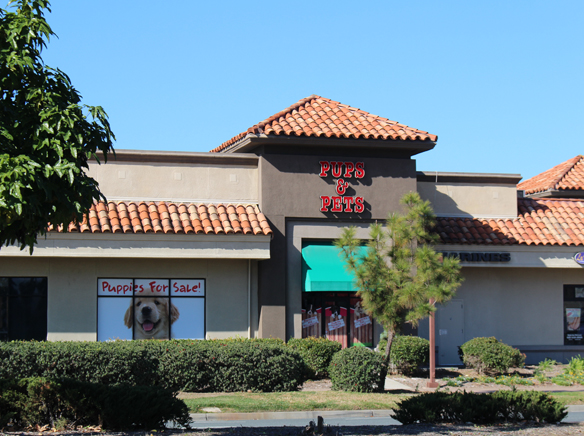The owner of a number of pet stores in the county, including Pups & Pets in Santee, was ordered by a judge recently to stop selling puppies.
In the latest development of a years-long tug of war between store owner David Salinas and animal rights activists, a judge ordered Salinas to stop selling puppies — for now — while a lawsuit filed by two non-profit animal rights groups, the Animal Protection and Rescue League Inc. and Not One Animal Harmed, is underway.
Salinas owns five puppy stores in Southern California: National City Puppy, Broadway Puppies in Escondido, Pups & Pets, The Fancy Puppy in Corona and Hello Puppies in Temecula.
He also owns The Puppy Store in Washington, Utah.
Lawyer Bryan Pease, who represents the animal rights groups, said Judge Eddie Sturgeon has ordered Salinas to stop selling puppies at all of his stores in San Diego County awaiting the result of the lawsuit.
Pease said the APRL and NOAH anticipate filing another case against him in Riverside.
George Najjar, who represents Salinas, said the scope of the order is unclear at this time.
The lawsuit echoes an argument that has continuously been brought forth by animal rights activists at National City council meetings and repeatedly denied by Salinas — that National City Puppy sells puppies sourced from puppy mills, which violates a state law that went into effect Jan. 1, 2019, mandating pet stores to obtain animals from animal shelters or rescue groups in partnership with at least one private or public shelter.
Court documents show that the lawsuit was filed Dec. 9, about a week after National City city staff finalized resolutions to submit an ordinance closing loopholes in the statewide Puppy Mill Ban to voters in March — an action that was prompted by a referendum for the first time in at least 50 years in National City.
Pease argued that Salinas engages in “linguistic gymnastics” and violates the Puppy Mill Ban by sourcing puppies from a Missouri based rescue group Pet Connect Inc., which partners with a shelter in Mexico that Pease says is ultimately outside of the jurisdiction of the California Food and Agriculture Code.
He also argued that Salinas is violating the Puppy Mill Ban because Pet Connect Inc. compensates brokers for puppies making them a “fake rescue” group, citing the Health & Safety Code which defines a rescue group as an organization that does not obtain animals from breeders or brokers for compensation.
Najjar argued that the agreement between Pet Connect Inc. and the Animal Control Center of the municipality of Mexicali is legal under California, Missouri and federal law.
He and a Pet Connect Inc. representative, Alysia Rothman, said that Pet Connect Inc. is not a “fake rescue” and does not breed dogs or get dogs from puppy mills, according to court documents.
Another hearing has been scheduled for Jan. 23.














